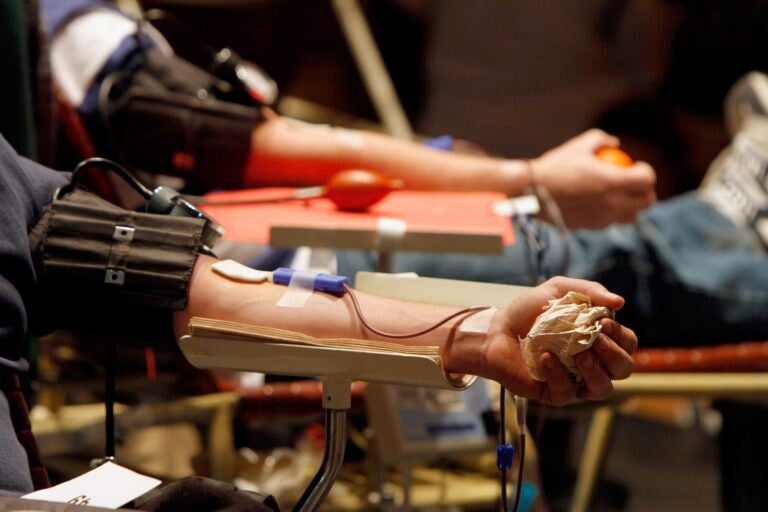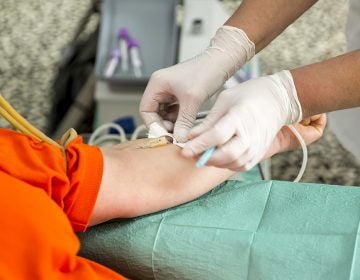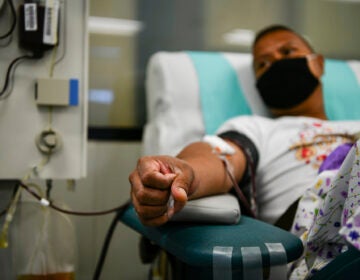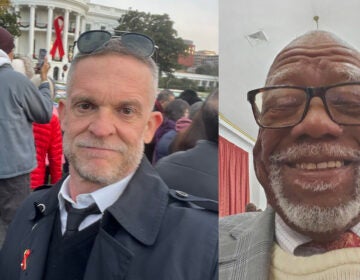HIV-era policy still limits gay men from giving blood during COVID
The FDA still limits gay men who've recovered from COVID-19 from donating their plasma. It's a relic of the 1980s HIV epidemic advocates say should be a thing of the past.
Listen 14:30
Donors give blood at a drive in Rutland, Vermont. (AP Photo/Toby Talbot, File)
Antibody-rich plasma from people who’ve recovered from COVID-19 is one treatment being researched to help those still battling the virus. But an estimated 360,000 people willing to donate their plasma are not allowed to do so — despite the fact it could save the lives of roughly a million Americans.
WHYY’s Zoe Read explains why a relic of the 1980s HIV epidemic still limits gay men from giving blood. She says Philly area politicians and LGBTQ advocates are pushing back.

Hear the whole story on The Why
Interview Highlights
On the origins of the federal policy
This is an FDA policy that stems back to the 1980s when HIV/AIDS was first coming about, and scientists and health experts didn’t know much about the virus. In fact, they called it “gay-related immunodeficiency” because at the time, they thought only men who had sex with men could get it. But they soon learned that HIV could be transmitted through blood transfusions, intravenous drug use and heterosexual intercourse. It wasn’t too long before they found out that thousands of people were getting HIV through blood transfusions.
It wasn’t until 2015 that men who have sex with men could donate blood at all. Then in 2015, they could only donate if they hadn’t had sex with a man in an entire year. Then this year, in April, as the coronavirus pandemic hit, and the FDA thought it was important to look at these policies again because of the need for blood donations. And with that, they reduced the deferral from one year to three months.
On whether the policy could be changed
In April, New Jersey’s Sheila Oliver, Delaware’s Bethany Hall Long and Pennsylvania’s John Fetterman joined a coalition of lieutenant governors urging the FDA to lift the restrictions. So now the FDA is actually participating in a study to investigate whether these donor deferrals can be based on individual risk assessments rather than sexual identity. And this pilot will enroll about 2,000 men who have sex with men and are willing to donate blood. The FDA says that this is in the early stages, so it doesn’t exactly know when this study will be complete.
Ian Morrison, a gay man from Philly, on being barred from donating his plasma
I spend a lot of time working with every city official you can think of. I run a big Mummers’ group. I run drag queen story time … I think I’ve accomplished a lot. And they can take that feeling that I’ve worked for 24 years and helping others and just make that feeling go away just by saying I can’t donate blood, as if it’s dirty or different from other people. It’s the most discriminatory thing I think I’ve ever faced as a gay man.
WHYY is your source for fact-based, in-depth journalism and information. As a nonprofit organization, we rely on financial support from readers like you. Please give today.








